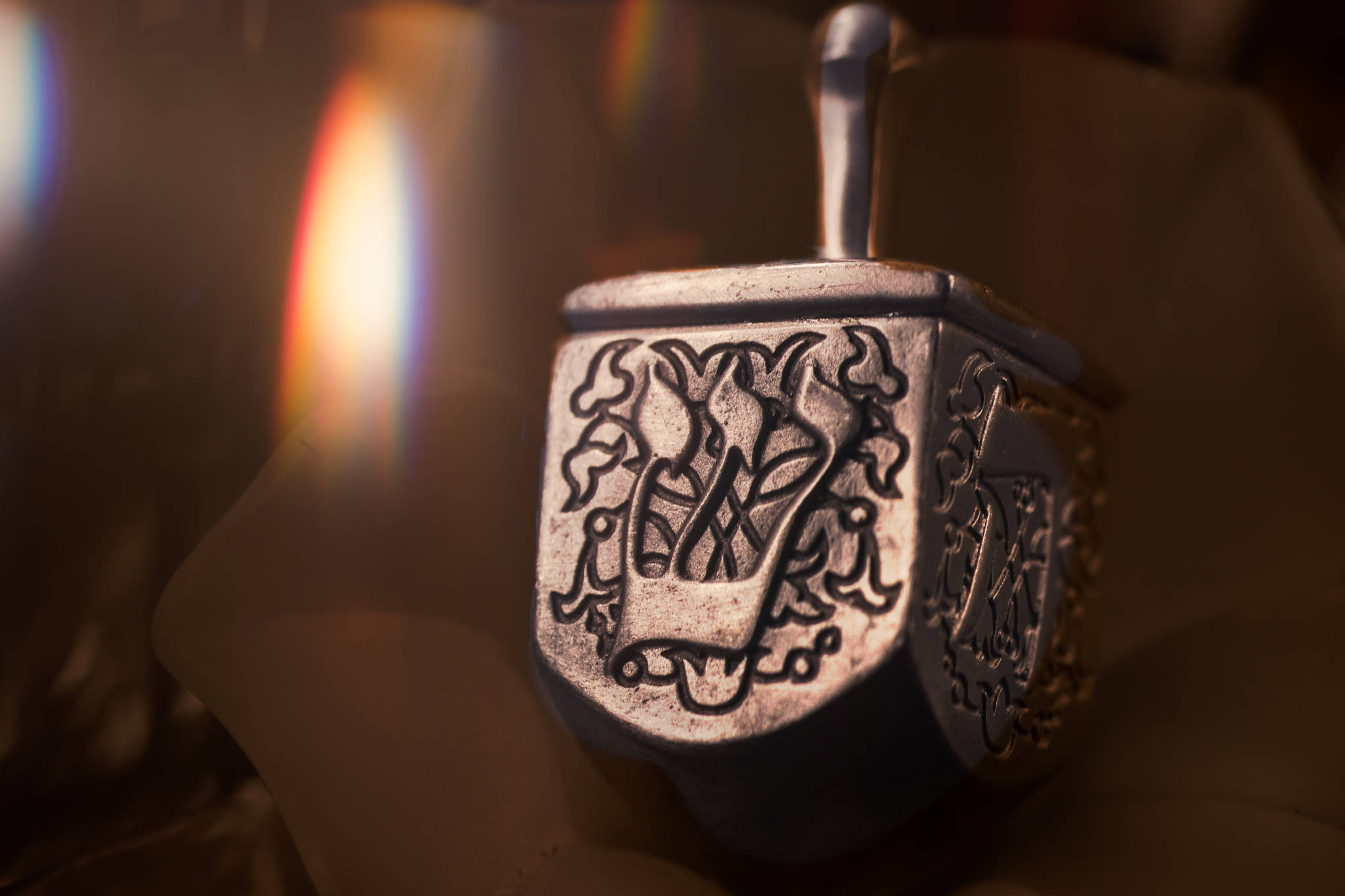I’m wearing sweaters, chugging eggnog and precariously climbing icy ladders to string up lights that ultimately won’t reach the exterior outlet — yup, it’s definitely December, again.
And while Christmas may be in the air, in a phenomenon meteorologists call a “holiday inversion,” here at ground level some of us are already celebrating our own seasonal excuse to consume salt, fat, sugar and the available balance on our credit cards.
That’s right, folks, it’s Hanukkah, the Jewish “Festival of Lights”! Break out the old menorah and put on those dreidel-spinning shoes because for eight crazy nights we’re going to party like it’s 165 BC!
For those unfamiliar with the holiday: Biblically-speaking, Hanukkah commemorates the Maccabean revolt, in which a small band of ancient Hebrews defeated the occupying Syrian-Greek army. After liberating Jerusalem, they rededicated the Holy Temple — of which the Western Wall still stands — by lighting one day’s worth of oil that miraculously lasted eight, until more could arrive via neighboring trade. But, aside from providing what the first documented warning about over-reliance on foreign oil, Hanukkah holds very little actual religious significance.
And yet, a recent survey shows it’s by far the most commonly observed Jewish holiday in the United States, most likely because it provides an alternative to Christmas, although, let’s not kid ourselves: nothing can compete with American Christmas. Not even the Super Bowl.
The most notable Hanukkah customs include lighting an eight-candled Hanukkah menorah — one candle for each night — and giving gifts — also one per night, although the first few are usually socks and underwear. Observance also often entails eating foods fried in oil, most commonly “latkes,” or potato pancakes, and “sufganiyot,” or donuts. So in a way, you celebrate Hanukkah whenever you go out to breakfast.
Of course, Hanukkah isn’t all about defying your cardiologist’s orders. Indeed, the holiday enjoys an interesting history in this country, perhaps even playing a role in its birth.
According to historic lore, Hanukkah may have inspired then-General George Washington to press on at Valley Forge during the winter of 1777. Story goes that Washington, walking amongst his cold, hungry troops, spotted a Jewish Continental soldier huddled away from camp, lighting Hanukkah candles. The soldier — an immigrant fleeing religious persecution — told Washington about the miraculous victory of the Maccabean militia over a much larger and better equipped foe. “Those tiny flames,” he recounted to hosts at a future Hanukkah dinner, “warmed him at a moment of profound bleakness.” And he cannot tell a lie.
Popular American observance of Hanukkah took off after the Civil War — just like Christmas and Thanksgiving—thanks to urbanization, industrialization and the advent of marketing. In fact, modern Hanukkah, was “invented” toward the end of the 19th century by two rabbis from Cincinnati looking for a way to connect with Jewish youth. Talk about a successful re-branding campaign: today, lighting Hanukkah candles ranks as the most frequently performed “mitzvah,” or “commandment” (perhaps you’re familiar with the first ten).
So pervasive has Hanukkah become in popular culture, the United States hosts a national menorah lighting — this year, lit by U.S. Secretary of the Interior Ryan Zinke (fitting, considering how much that guy loves oil) — and even a White House Hanukkah party. Ever seen a photo of Trump wearing a yarmulke? Priceless.
Other contemporary Hanukkah activities include: playing with a “dreidel,” or four-sided spinning top, a surprisingly engaging toy despite its total lack of screens; testing your fire extinguisher (prudent, given the proximity of young children to lit candles and deep fat fryers); singing traditional Hanukkah songs and wondering why there can’t be better traditional Hanukkah songs, especially considering the music and lyrics to “White Christmas,” “Silver Bells,” “Rudolph the Red-Nosed Reindeer” AND “Let It Snow! Let It Snow! Let It Snow!” were all written by Jews. Oh, and, of course, explaining to everyone — including your kids — why you don’t have a Christmas tree.
Let me go on record: I like Christmas. Most of us do. We get the whole day off with nothing to do except eat Chinese food and watch movies. And I have absolutely no problem saying “Merry Christmas;” nor do I get my boxer-briefs in a twist when someone says it to me. Who has the time or energy to take issue with the wishing of merriment?
But Christmas is not my holiday, simple as that. My family didn’t escape the pogroms of Tsarist Russia, and, later, the Holocaust, for me to just cave in and get a Christmas tree in my living room. That’s the exactly the kind of thing the Maccabees revolted against 2,200 years ago … plus, if my grandparents were alive, it would kill them.
So Happy Hanukkah (and Merry Christmas) everybody. And let’s not forget the true reason for the season: staving off seasonal affective disorder by increasing your carbon footprint.
• Geoff Kirsch is an award-winning Juneau-based writer and humorist. “Slack Tide” appears every second and fourth Sunday.

